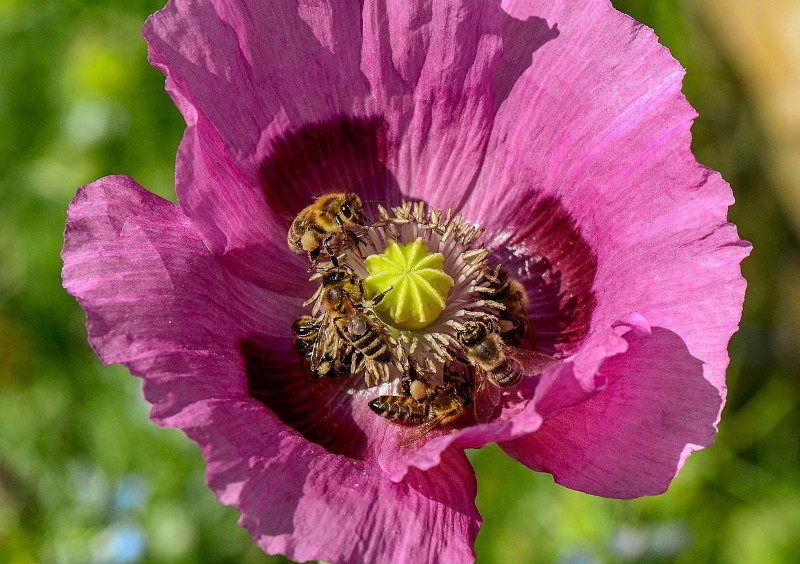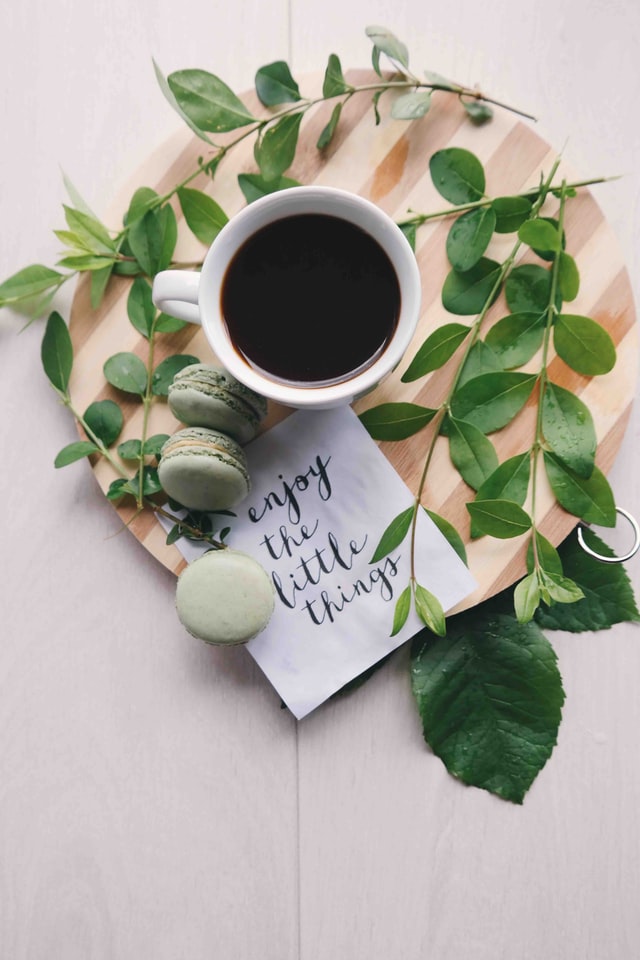
It could happen any time, tornado,
earthquake, Armageddon. It could happen.
Or sunshine, love, salvation.It could, you know. That’s why we wake
and look out – no guarantees
in this life.But some bonuses, like morning,
(“Yes” by William Stafford)
like right now, like noon,
like evening.
“Say thank you to Uncle Dave,” his mother gently nudges him. It’s his first conscious birthday party, he is three now. As more guests arrive, increasing numbers of wrapped boxes appear, repeatedly pulling him away from assembling his new magnetic toy elements into diggers and harvesters, which is what he is really into. But clearly, some action on his part is required and so he dutifully tears off string, tape, colorful paper, and pulls shiny cards out of envelopes. When those jobs are done successfully, he returns to his game, without paying any further attention to the content of those boxes and cards. It is as if he knows that dedicating himself to one thing in that moment is the most rewarding use of his time. The room is strewn with packaging, toy animals, and all manner and size of vehicles, including a scooter, which he does watch being assembled by his dad and stands on for a while. He hasn’t really got an understanding of the social complexities of giving and receiving, the importance of saying “thank you.” He probably doesn’t even quite realize that he is the star of the occasion—he is still blissfully free of a sense of separate selfhood.
But soon enough he will become enmeshed in the ways we adults attach value to the things we own, give, or receive, and how we create stories about our related self-worth. Secretly, we gauge the value, suitability, or originality of our gifts against those of others. The atmosphere in the room is subdued, there are undercurrents of inner and interpersonal tension that nobody quite understands or knows how to navigate. What is clear is that the abundance of expensive presents doesn’t help—despite the best of intentions, they can’t compensate for a lack of genuine ease and joy. I feel dismay at witnessing the mechanism of materialism at play, the creation of the next generation of addicted consumers looking for happiness in the wrong places.
One key to lasting happiness is gratitude. Not the perfunctory “thank you” that is part of a superficial social code, but the visceral experience of connection, generosity, and plenitude. The neuro-psychologist Rick Hanson says that “gratitude, the experience of what is good in one’s life, even abundantly good, is a powerful and direct antidote to thoughts and feelings of being threatened.” (Rick Hanson) Everything is easier when our nervous system is not in threat mode: we are relaxed, have a better perspective on things, feel more connected to others and the world; we are more effective, make better decisions, and generally enjoy ourselves more. There may be the occasional burst of adrenalin to deal with an unexpected challenge—like a child running onto a busy street. Ideally, you would want to calm down from that flurry of stress hormones as quickly as possible. The reality for many people these days is that stress has become chronic. The combination of highly complex modern living conditions with the “negativity bias” of the human brain—our hard-wired tendency to look out for danger and focus on what’s unpleasant in order to survive—means that an ever-increasing proportion of human beings are stuck in fight/flight/freeze states. A great number of health problems come with that: depression, anxiety, cardio-vascular issues, and so on. The deliberate and regular practice of gratitude works wonders for down-regulating the nervous system. It’s very simple—here’s how I do it.
Every day, my husband and I will ask each other what we are grateful for. Often, we mention ordinary things: a meal the other has prepared, a successful piece of work, a message from a friend, the giant white lilies someone has planted in the communal back garden and which we are able to admire from our kitchen window. Just listing these good things lifts the mood and also makes it more likely that these occurrences are stored in long-term memory and help to shape the sense of who we are: people who have good fortune in life. Equally important is what we try not to do: we try not to moan and complain, although that is tempting, about the weather (temperatures in Scotland have hardly risen above 18ºC all June), the slugs (eating most of our lettuce), the government (the installation of parking meters in our quiet, out-of-the-way street) or how complicated and exhausting this computer-based existence has become. Okay, a bit of moaning like this can have its uses in letting off some steam, but appreciatively turning toward what’s positive is a more powerful and reliable mood-shifter. It equips us to face the really big issues, such as global warming, without becoming overwhelmed.
So what is the secret of gratitude? What makes it so powerful? It’s not wearing rose-tinted spectacles, but rather the opposite: removing veils of delusion. It’s the explicit acknowledgement that we can’t exist separately from others and the environment, and that we are not totally in control. We are putting ourselves humbly into a receptive relationship with something bigger than our small selves, relaxing the ego-project we usually work so hard to maintain. It’s the shedding of a burden—we don’t have to do it all ourselves. We say “thank you” to those perfect glossy cherries, the people who grew and protected the cherry tree, harvested, packaged, transported, and sold the fruit and to the people who made the bag in which I carry them home. Embracing the truth of our interconnectedness is a relief—the ungraspable multi-dimensionality of it transcends narrow utilitarianism, re-establishes flow—I can feel it in my body. But perhaps we are headed somewhere else? Billions are spent devising the mechanical means for human colonies to survive the death of life-sustaining conditions on Earth, perhaps on other planets, capsuled off from a hostile environment, producing everything needed for survival within that enclave. Such tragic impoverishment! If only we could be content with less, grateful for the abundance that is there already. “We traded our lives for so little,” the poet J. C. Niala says.
This sci-fi image popped into my mind during a meditation at the allotment, huddled in layers of clothing—14ºC this morning!—watching bees crowd the calyx of a freshly opened scarlet poppy flower. It will be available for this feast of fertilization for only a day or two, before its crumpled, flappy petals, too thin-seeming for their size, will drop. Insect wings and dozens of white-gold filigree stamens alike are trembling with excitement and urgency, and, surely, gratitude. I feel gratitude for being present at this pivotal moment (having scattered the tiny black poppy seeds at this patch last autumn) and am now tuning into taking part in the innocence and immediacy of this particular expression of life, right here and now. The best way I can cope with the fleetingness of this exquisite consummation is to let go of this “I,” relaxing into awareness without a watcher, blooming into the moment.
Maybe gratitude falls off the radar so easily because we forget how to do this—appreciatively enjoying the moment while it lasts. We are too busy warding off calamity, achieving things, or proving something to ourselves or others. We are too tense and unwilling to experience that tension, which would happen if we stopped. Alertness is not hard to access; we must be prepared for either Armageddon or salvation, as William Stafford points out in his poem, but we easily veer into hyper-vigilance. The “bonus” is what is given without our efforts—this very everchanging moment—“evening.” Gratitude is not just about counting our blessings in hindsight, but appreciative and participatory awareness of life in the moment-to-moment flow of its unfolding. The skill in this lies partly in honing sensory awareness—tasting, smelling, hearing—and also in discerning, with increasing accuracy, the qualitative needs that are met by the occasion. And then enjoying those qualities, basking in the fulness of the experience. This is the other thing my husband and I do as a practice and leisure pursuit—we consider which needs are met by the experience we are grateful for. For example, the detailed, positive comment from a workshop participant meets needs for effectiveness, learning, celebration, being seen and valued, and for making a contribution. This feels so rich, much more so then just saying “I feel grateful for that comment.” Our patient computer specialist’s help in readying a new laptop for action meets needs for ease, connection, and effectiveness. How wonderful is that!
A new little ritual is emerging in our household as I explore this subject: periodically ringing a “gratitude bell” for each other. It means stopping and taking in the specific colors of the moment with that sense of it being a gift, and letting it flow through without an appropriator. Similarly, focusing on gratefulness at the beginning of a meditation is also a wonderful way to arrive fully on the cushion. The qualities of met needs perfume the atmosphere in changing proportions, like the ingredients of the incense wafting through the space: lemon and cedar, or rose and patchouli. I will then take these treasures to the next birthday party, perhaps finding a way to let it gladden the atmosphere.
See more
Gratitude (Rick Hanson)
Related features from BDG
Walking into the Light of Wisdom: A Humble Tribute to the Legacy of Phra Khru Baitika Dr. Barton Yanathiro
Gratitude Is Being Taken for Granted
You’re Not Not: Delighting in the Joy of Being by Opening to Existential Gratitude
Practicing Gratitude When the Sh*t Hits the Fan: Plutarch and the Practice of Blending
Buddhistdoor View: Cultivating Gratitude this Holiday Season













